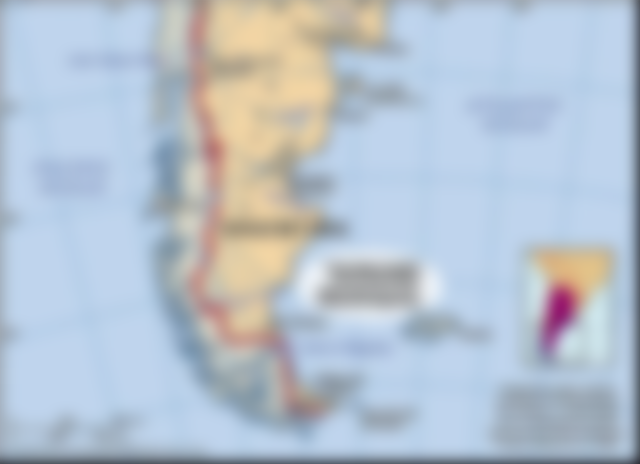Javier Milei And The Separation Of Money And State
The Inevitability Of Decentralized Money.

If there is one time in history one man can take on his shoulders and say that’s enough, then for Argentina, this is now.
Javier Milei is most likely the next president of Argentina, and apparently a drastic change for the economy, which has only been moving downhill for the past twenty-five years.
Javier Milei, a libertarian, becomes the voice of Argentina and inspires a movement of transparency, reasonable governance, and progress.
Milei’s interview with Tucker Carlson on X broke all records as it surpassed the remarkable number of 350 million views!
As an outspoken critic of the socialist agenda in his country, he rallies millions of supporters in a country ravaged by hyperinflation, high debt, national bankruptcies, and frozen international assets.
An economy that was once one of the wealthiest in the world declined to a state of poverty after more than two decades of internal dysfunctional politics and economics and external attacks on the monetary base, the Argentinean peso.
The Economy That Never Recovered

(Wikipedia (By Deensel — Puerto Madero, Buenos Aires, CC BY 2.0))
The 2000 collapse was covered extensively by global news networks.
We watched the riots and stories from the streets of Buenos Aires and other major cities in late 2001 and learned about police crackdowns and the vile methods used by the regime to confront protestors which included the spread of cheap and low-quality narcotics in the poorest communities, to reduce the protests, consciousness and awareness of the catastrophic events.
Argentina is vast and self-sufficient. Hence, the concerns were mostly about organizing the economy and not about external factors, yet, it turns out that the peso and the economy were targetted.
The 2000 bankruptcy led to a death spiral for the Argentinian economy which never recovered.

45 million Argentinians are tired of the endless failures. They want to test something entirely different, an Austrian economic school model that will stabilize the economy.
Argentina always adhered to capitalist principles, but it is also suffering from dysfunctional governments and high corruption rates.
The economy has to put new policies to the test and since none of the prevailing parties offered hope, Milei, an anarcho-capitalist economist emerged.
Argentina was punished by global finance even when it adhered to Western capitalist democratic values.
It wasn’t a communist or socialist state like Venezuela, Cuba, or North Korea, yet, the system demanded its exclusion from the “free market”.
A Punishment For the Falkland Islands?

The authoritarian junta in the 80s made several mistakes and created conditions that perhaps could have been resolved peacefully with dialogue with the UK over the ownership of the oil-rich Falkland Islands.
Eventually, the Falkland people decided in the 2013 referendum to remain part of the British overseas territories, which is also important to mention.
Actually, Argentina has historical reasons to maintain its claim, but we mention the Falkland islands in this story as it appears there was no other reason for the West to retaliate to the 2000s bankruptcy with this merciless financial approach.
The Opportunity For Drastic Changes

In an economy where socialism and capitalism failed, economist Javier Milei appears to be attracting the popular vote in the upcoming elections with a disruptive agenda of minimizing the government and supporting private investment and businesses.

Private initiatives will thrive to create the foundations of a strong economy, allowing Argentina to compete on the world stage as an equal partner again.
However, even with a minimalistic government and a boost in the business and industrial sectors, there is one more indicator that not even Milei can fix unless he entirely terminates it.
The Central Bank And The Peso
Milei knows (as an economist) he can not fix the Central Bank, hence, he advocates revoking its presence.
Even if Milei controls the Central Bank, the system will not stop inflating the peso because the peso will keep declining in global markets.
Furthermore, here is a part of the economic theory not often mentioned:
An Invisible Head Tax

Higher inflation reduces the debt ratio.
Economies today have to support extreme debt levels. The possibility of bankruptcy is not a viable option, as the consequences would be both catastrophic and irreversible.
Argentina’s inflation is currently adopted as a viable economic policy since it enables the reduction of national debt. It also allows the government to proceed with socialist policies that temporarily only create better conditions as, in the long run, it only damages the economy.
The populist policies of handing over grants and allowances and airdropping money serve only the politicians during elections but generate devastating economic effects.
This is why Milei talks about socialism in the way he does, and the reason most economists are in consensus that money should become independent of governments.
Inflation is the worst type of tax, an artificially enforced invisible tax with an increase in money supply.
It reduces the national debt and allows the increase of government spending and gov expansion at the expense of prosperity.
What is the Alternative to the Peso?
Apparently, for Milei, this is the dollar.
However, even this course of action will not work either.
Dollarized economies like El Salvador, Panama, and Liberia are not exactly thriving (quite the opposite).
In a dollarized economy, Argentina could temporarily stabilize inflation, but it will only support the US economy by stagnating its own further.
Entirely dollarizing the economy is probably not the model Argentina should seek, since it is not a small Central American country with limited resources.
The economy of Argentina is suppressed to a small size and should have already grown ten times larger under different conditions.
Argentina has to become the beacon of hope for Latin America to revive its previous wealth and glory, and for countries like Peru, Chile, Brazil, and Colombia to follow, but the dollar alone will not facilitate such an endeavor.
The Argentinean case study is the basis for comprehending why the separation of money and state is fundamental for the future of its economy.
An economic overhaul is required to enable the true potential of this economy.
The population is growing, but poverty prevails due to bad governance and horrible policies that restrict economic freedom, inclusion, innovation, and progress.
The peso is the actual attack vector against the Argentinian economy.
Since Argentina is not strong enough to sustain a reasonable fiat money system with low inflation, the only reasonable system is a decentralized one.
A parallel monetary system is essential for Argentina to escape the current economic death spiral.
In Conclusion
This is the full interview of Javier Milei to Tucker Carlson on X: link
Milei is promising the reduction of government spending by cutting down dysfunctional parts of the state that produce a net negative.
A radical economic shift that would require overwhelming support from Argentineans to succeed.
However, these economic policies will enable prosperity and an end to 25 years of financial stagnation.
Dollarization could work, but a parallel economic system would be more appropriate to fix Argentina’s 25 years of economic disaster.
A parallel system with a working cryptocurrency with a fixed supply without the issues that BTC carries will be proven a viable solution.
Part II:

Donations
BCH: tipb.ch/Pantera
CashTokens: bitcoincash:zr4nz4jv6jtf7q5tul8dy9j58u24pwawxsm0hh8hwz
Also Read:
Platforms:
● YouTube ● Medium ● read.cash
● X ● Noise ● Memo ● Cashrain
Subscribe to my YouTube channel: @panteraCrypto
Don’t forget to Subscribe and Like if you enjoyed this article!








